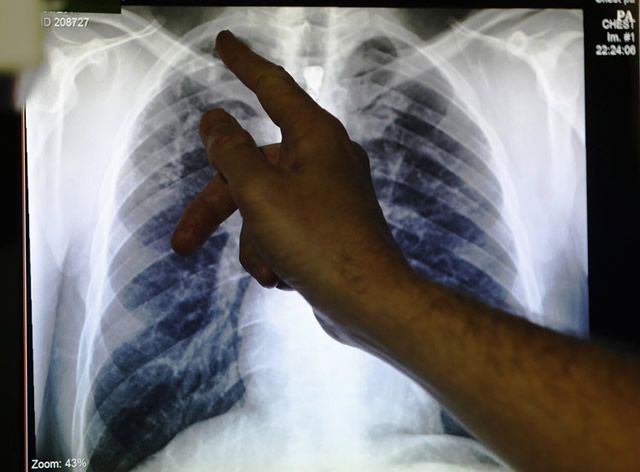Good nutrition needed to aid TB treatment, health expert

Precious Manomano Herald Reporter
There is need to implement nutritional interventions for people living with tuberculosis (TB) to ensure the success of the treatment, deputy director HIV, AIDS and TB programmes in the Ministry of Health and Child Care Dr Charles Sandy said yesterday.
In an interview, Dr Sandy said undernutrition was associated with increased tuberculosis incidence, increased severity, worse treatment outcomes and increased mortality.
Tuberculosis is the leading cause of deaths worldwide, outside Covid-19 and HIV.
“The risk of complications including death from infections is influenced by the nutritional status of an individual, but the nutritional status of an individual and utilisation of nutrients are also adversely affected following an infection,” Dr Sandy said.
TB patients frequently exhibit weight loss, or they are malnourished owing to suboptimal protein intake, muscle catabolism induced by inflammation during infection.
Weight loss among people with TB can be caused by several factors, including reduced food intake due to loss of appetite, nausea and abdominal pain.
Equally, under nutrition weakens the body’s ability to fight diseases.
Dr Sandy said the mortality rate in TB patients was high last year, with most deaths occurring in Matabeleland South, Matabeleland North, Midlands and Bulawayo provinces.
TB is associated with poverty, overcrowding, alcoholism, stress, drug addiction and malnutrition. The disease spreads easily in overcrowded, badly ventilated places and among people who are undernourished.
“The global burden of TB is increasing, largely due to the spread of HIV/AIDS,” said Dr Sandy. “HIV-infected persons are far more susceptible to TB, are more difficult to diagnose, and in addition, are also more difficult to treat.
“HIV-infected people have a much higher mortality in the period following TB treatment, with 30 percent dying within a year of diagnosis and treatment.
“Recently, the World Health Organisation commended Government for its efforts to reduce the TB burden by implementing strong strategies and programmes aimed at increasing domestic funding for health, which are articulated in the National Development Strategy 1.”
Dr Sandy said Zimbabwe was burdened with the traditional TB, TB associated with HIV and multi-drug-resistant TB.
“The most affected groups are women in the reproductive age group of 15 years to 44 years and men,” he said. “The United Nations sustainable development goal number three targets a 90 percent reduction in TB deaths, an 80 percent reduction in TB incident rate and ensuring all TB affected families are no longer facing catastrophic costs when accessing TB treatment by 2030.
“This will lead countries to meeting the WHO deadline of 2035 to eradicate TB.”







Comments